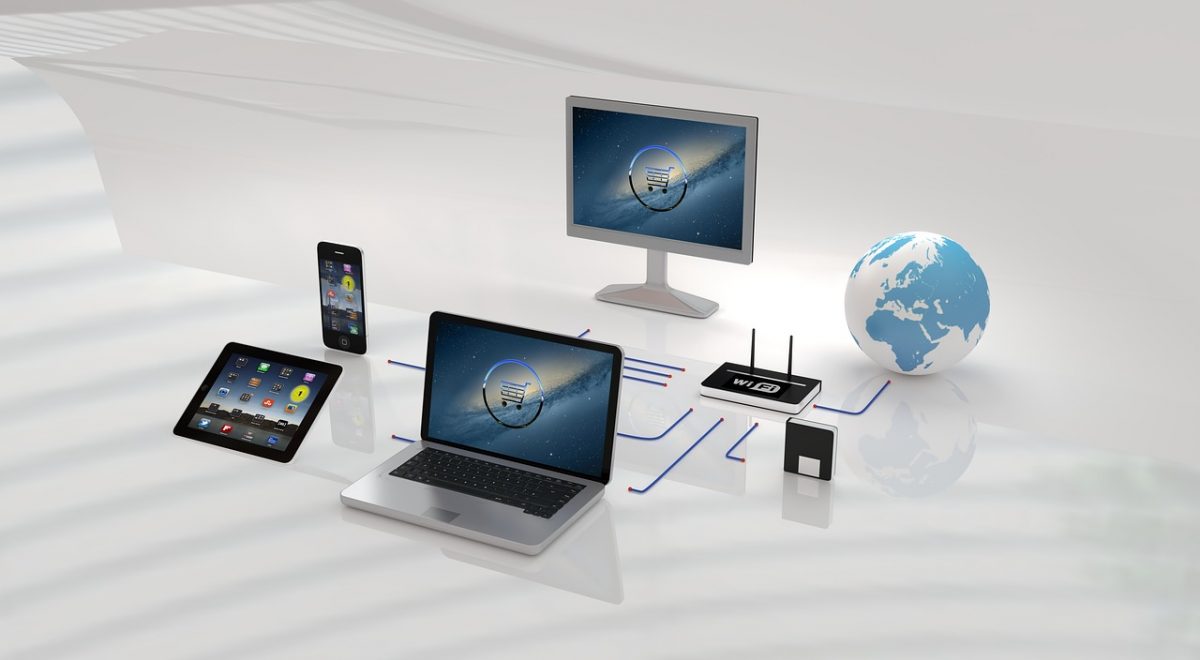
In the UK, service providers span a wide range of industries, offering everything from utilities and telecom services to healthcare, financial services, and more. Here’s an overview of the different types of service providers you might encounter in the UK:
1. Telecommunications Providers
These companies offer mobile, broadband, and landline services:
- Mobile Network Providers: Major providers include EE, O2, Vodafone, and Three. They offer mobile phones, data plans, and mobile broadband.
- Broadband & Landline Providers: Companies such as BT, Sky, Virgin Media, TalkTalk, and Plusnet provide broadband internet and landline services. Many of these companies also offer bundled packages with TV services.
2. Utilities Providers
These are essential services like gas, electricity, and water:
- Electricity & Gas Suppliers: Providers include British Gas, E.ON, ScottishPower, EDF Energy, Octopus Energy, and SSE. These companies supply energy, with some also offering renewable energy options.
- Water Providers: Water services are region-specific in the UK, with major companies including Thames Water, United Utilities, Severn Trent Water, and Scottish Water.
3. Financial Service Providers
These companies offer banking, insurance, and investment services:
- Banks: Major banks include Barclays, HSBC, Lloyds Bank, NatWest, and Santander. They offer personal, business, and mortgage banking services.
- Insurance Providers: Companies like Aviva, Direct Line, Admiral, and AXA provide car, home, life, and travel insurance.
- Investment & Pension Providers: Fidelity, Vanguard, and Standard Life offer investment and pension services.
4. Healthcare Providers
These range from public services under the NHS to private healthcare providers:
- NHS (National Health Service): The public healthcare system offers free-at-the-point-of-use services, including general practitioner (GP) visits, hospital care, surgeries, and emergency services.
- Private Healthcare Providers: Companies like Bupa, AXA PPP, and Spire Healthcare offer private medical insurance and treatment options. These providers often offer quicker access to medical services.

5. Internet and Media Providers
These companies offer access to TV, digital media, and streaming services:
- Television & Streaming: Sky, Virgin Media, and BT TV offer traditional cable and satellite television. For streaming, there’s Netflix, Amazon Prime Video, Disney+, and BBC’s iPlayer.
- Online Media: Spotify, Apple Music, and YouTube provide audio and video streaming services.
6. Transport & Delivery Services
Providers in this sector include:
- Public Transport: Transport for London (TfL) for London-based services, and national train providers like Avanti West Coast, Great Western Railway, and National Express for buses.
- Delivery Services: Major companies include Royal Mail, ParcelForce, Hermes (Evri), DPD, and Yodel.
7. Education Providers
- Schools & Universities: The UK has a mix of public and private schools, with universities like Oxford, Cambridge, Imperial College London, and London School of Economics offering higher education.
- Online Learning Platforms: Providers like FutureLearn, Coursera, and Udemy offer online courses and learning resources.
8. Construction & Property Services
- Estate Agents: Companies such as Rightmove, Zoopla, Foxtons, and Savills provide property listings for sale and rent.
- Construction & Renovation: Providers like Balfour Beatty, Kier Group, and Willmott Dixon offer construction, engineering, and infrastructure services.
9. Hospitality & Leisure Providers
- Hotels and Accommodation: Popular hotel chains include Premier Inn, Travelodge, and Hilton, offering accommodation services.
- Leisure & Recreation: Companies like PureGym, David Lloyd, and The National Trust provide gym memberships and recreational activities.
Consumer Rights and Switching Service Providers:
In the UK, the government and regulators like Ofgem (for energy) and Ofcom (for telecoms) oversee the quality of services and protect consumers. Many sectors also have options for customers to switch service providers easily, whether for broadband, energy, or insurance, often through comparison websites.
Common Comparison Websites:
These websites allow consumers to compare service providers across various sectors and find the best deals available.
Telecommunications providers
In the UK, several major telecommunications providers offer a variety of services, including broadband, mobile, TV, and landline services. Here’s an overview of the key players:
1. BT Group
- Services: Broadband, mobile, landline, TV, and business services.
- Overview: BT is one of the oldest and largest telecom providers in the UK. They offer a range of services to both residential customers and businesses, including fibre broadband and digital TV services (through BT TV).
- Key offerings: BT Fibre (FTTC and FTTP), BT Mobile, BT Sport TV.
2. Sky
- Services: Broadband, TV, landline, mobile, and pay TV.
- Overview: Known for its pay-TV services, Sky is also a significant player in the broadband and mobile markets. They provide a mix of broadband options, including fibre, and have mobile plans through a partnership with O2.
- Key offerings: Sky Fibre, Sky Mobile, Sky Q TV service, Sky Sports and Sky Cinema channels.
3. Virgin Media
- Services: Broadband, TV, mobile, landline.
- Overview: Virgin Media offers high-speed broadband (including some of the fastest speeds available in the UK) and a range of digital TV options. They also provide mobile services via a virtual network using O2’s infrastructure.
- Key offerings: Virgin Fibre, Virgin Mobile, Virgin TV.
4. EE (Everything Everywhere)
- Services: Mobile, broadband, landline.
- Overview: EE is part of the BT Group but operates as a separate entity. They offer mobile services (including 4G and 5G) and broadband (including fibre options). They are known for their mobile network coverage and speeds.
- Key offerings: EE 4G/5G, EE Broadband (FTTC), EE TV (through BT TV).
5. O2 (Telefonica UK)
- Services: Mobile, broadband.
- Overview: O2 is primarily known for its mobile services but also provides home broadband through partnerships. O2 is now owned by the Spanish telecom company Telefónica, and they offer various mobile contracts, SIM-only plans, and broadband bundles.
- Key offerings: O2 Mobile, O2 Broadband, O2 Business services.
6. Three UK
- Services: Mobile, broadband.
- Overview: Three is known for offering competitive mobile services, including unlimited data plans, and is one of the main providers for 5G in the UK. They also offer home broadband through 4G and 5G home routers.
- Key offerings: Three Mobile, Three 5G, Three Home Broadband.
7. Vodafone
- Services: Mobile, broadband, landline, TV.
- Overview: Vodafone is one of the world’s largest telecom companies and offers a full range of services in the UK, including mobile and home broadband (including fibre). They also provide TV services through partnerships with TV providers.
- Key offerings: Vodafone Mobile, Vodafone Fibre Broadband, Vodafone TV.
8. TalkTalk
- Services: Broadband, landline, TV.
- Overview: TalkTalk is a budget-friendly provider in the UK, offering broadband services (both standard and fibre) along with landline and TV packages. They focus on providing affordable services with decent speeds.
- Key offerings: TalkTalk Fibre, TalkTalk TV, TalkTalk Mobile (via an MVNO).
9. Plusnet
- Services: Broadband, landline, mobile.
- Overview: Plusnet is a subsidiary of BT but operates as a separate brand. Known for good customer service and affordable pricing, Plusnet offers broadband (ADSL, fibre) and landline services, as well as mobile plans.
- Key offerings: Plusnet Fibre, Plusnet Mobile, Plusnet Landline.
10. Hyperoptic
- Services: Fibre broadband.
- Overview: Specializing in gigabit-speed fibre-optic broadband, Hyperoptic focuses on providing fast internet in urban areas. Their service is typically available in certain city locations, especially in large multi-dwelling buildings (e.g., apartments).
- Key offerings: Hyperoptic Gigabit Broadband.
11. Shell Energy
- Services: Broadband, gas, and electricity.
- Overview: A relatively new player in the broadband market, Shell Energy offers affordable broadband and energy services, with a focus on competitive pricing and green energy.
- Key offerings: Shell Energy Broadband, Shell Energy Mobile.
12. KCOM
- Services: Broadband, landline.
- Overview: Primarily serving the East Yorkshire area, KCOM is a regional provider offering fibre broadband, including full-fibre (FTTP) connections, which is becoming more popular for fast, reliable broadband.
- Key offerings: KCOM Fibre Broadband.
These are some of the main telecommunications providers in the UK. Each offers various bundles and deals for broadband, TV, and mobile services, with some also providing packages that include home phone lines and TV entertainment. Depending on your needs (e.g., high-speed broadband, mobile data, TV services), it can be helpful to compare these providers in terms of coverage, pricing, and customer service.
Check the signal strength where you live or work.
Here you will find a free tool if you need to make a complaint about your network.
When you get a new phone through a mobile network, the chances are it’ll be locked to that network, and if you try to put another network’s Sim card in, it won’t work.
Pay as you go
A pay-as-you-go (PAYG) deal, as the name suggests, means you pay upfront and are not tied into any contract or commitment. You’ll also have to have your own handset to put the Sim (the little chip that slots into your phone and gives you your allowance of minutes, texts and data) into already, or buy one separately.
Sims
SIMs are computer chips that hold information and allow you to connect with your network. This means you can make calls, send sms messages and connect to mobile internet services like 3G, 4G, and 5G. They’re also transferable and you can choose to save messages, contacts, and emails to them.
The sooner you can organise a SIM card, the sooner you can be contactable by friends and family as well as adding the number to your CV and giving it out to employers.
You need to buy a airtime credit in the form of a top up before you can make any calls or texts. This credit is used to pay for the texts and calls you make – when you run out of credit you need to top-up your phone again before you can use it.
Broadband
Broadband is actually a high-speed internet connection to enjoy everything the internet offers. It is a permanent internet connection. It brings an internet signal to and from a device through a traditional telephone line.
If you want broadband, you’ll need an active phone line, but not every house or flat is set up with one already. In those cases, you’ll need to get a new line installed.
It comes in a variety of forms, and their availability usually depends on the provider you choose as well as your location.
Many providers also offer other services alongside broadband, including phone and/or television packages. It can sometimes be cheaper to combine services into bundles as your provider might offer a discount or certain incentives if you go for this option, however it’s always worth comparing your choices.
- Compare broadband deals, phone line & TV to create your perfect package
- Haggling is also one of your price cut weapons which may get you a better deal.
- How to improve your broadband speed, and free speed test tools.
- Top tips to boost your internet speeds
Streaming services
An online provider of entertainment (music, movies, etc) delivers the content via an Internet connection to the subscriber’s computer, TV or mobile device.
The main advantages of streaming: Streaming is immediate, and streaming content starts to play more or less instantly, regardless of how large the audio or video file is. There’s no need to wait for it to download in its entirety. Streaming doesn’t require storage space.
How Now’s TV streaming service is changing
Check if you need a TV licence
Utilities Providers

In the UK, utility providers are companies that deliver essential services such as gas, electricity, water, broadband, and waste management to households and businesses. Here’s a breakdown of major utility providers in the UK:
In the UK, utility providers are companies that deliver essential services such as gas, electricity, water, broadband, and waste management to households and businesses. Here’s a breakdown of major utility providers in the UK:
1. Gas and Electricity Providers
These companies supply and manage the distribution of energy to homes and businesses.
- British Gas – One of the largest suppliers of energy, offering gas and electricity, as well as home insurance and boiler services.
- EDF Energy – Provides electricity and gas and is known for a focus on renewable energy.
- E.ON UK – Supplies electricity and gas, and is working towards carbon-neutral energy solutions.
- Scottish Power – Supplies electricity and gas, part of the Iberdrola Group, with a strong focus on green energy.
- SSE (Scottish and Southern Energy) – Offers electricity, gas, and broadband, with a commitment to renewable energy sources.
- Octopus Energy – Known for its commitment to sustainable energy, offering flexible tariffs and competitive prices.
- Bulb Energy – A renewable energy-focused provider, offering both gas and electricity.
- Utility Warehouse – Provides a range of services, including gas, electricity, broadband, and home insurance.
- Ovo Energy – A fast-growing energy provider, offering electricity and gas, with an emphasis on clean energy.
2. Water Providers
Water companies are regionally based in the UK, each responsible for the supply and management of water and wastewater services.
- Thames Water – Serves London and the surrounding areas.
- Severn Trent Water – Operates in the Midlands and parts of Wales.
- United Utilities – Responsible for water supply and wastewater services in the North West of England.
- Scottish Water – Covers Scotland, providing water and wastewater services.
- Yorkshire Water – Supplies water and wastewater services to Yorkshire.
- South West Water – Provides services across the South West of England, including Cornwall and Devon.
- Wessex Water – Provides water and wastewater services to the South West, including parts of Bristol and Dorset.
- Anglian Water – Supplies water to the East of England.
4. Waste and Recycling
Most waste collection is done by local councils, but some private providers also offer additional services.
- Veolia – A major waste management company, offering waste and recycling collection for various local authorities.
- SUEZ Recycling & Recovery – Offers waste collection, recycling, and disposal services to both domestic and commercial clients.
- Biffa – Specialises in waste management and recycling services for both homes and businesses.
5. Heating and Plumbing Services
Some utility providers also offer services related to home heating and plumbing, including boiler servicing and repair.
- British Gas – Also provides boiler installation and servicing through its home services division.
- HomeServe – Offers emergency plumbing, heating, and electrical services, as well as home repairs.
6. Other Utility Providers
There are also providers offering services such as home insurance, solar panel installations, and electric vehicle charging solutions.
- E.ON Next – In addition to gas and electricity, E.ON Next offers electric vehicle charging solutions.
- Octopus Energy – Has expanded into solar panel installations and other green energy solutions.
Electricity and gas
Most houses in the UK use either just electricity or electricity and gas. There are often good deals and it is worth reviewing every year to see what offers are on.
If you choose the monthly direct debit option to pay for your electricity and gas, the payment will be taken from your account at around the same time each month. It’s calculated by your provider, which estimates your entire year’s usage and divides it across 12 months.
If you choose to make quarterly direct debit payments, it will work in exactly the same way as monthly payments – however the payment is taken from your bank every three months. As a result the payments will naturally be higher, but the overall cost will be similar to a monthly scheme.
A dual fuel tariff simply means that you receive both your gas and your electricity from the same supplier. It is more common for people to purchase their gas and electricity from two different energy companies. However dual fuel tariffs can be a great way to save yourself money on your gas and electricity bills.
- What to do if you’re struggling to pay your energy bills
- Another option you have for paying for energy is to use a prepayment meter.
- How do prepayment meters work?
- Where to go for free one-on-one energy and debt advice
- Check if you can get free insulation or boiler grants to make your home more energy efficient
- Compare energy deals
- What are smart meters?
- Can I switch with smart meters
- How do I get ‘free’ smart meters?
- Cheap green energy
What uses the most electricity in a house ?
- Cooling and heating: 47% of energy use.
- Water heater: 14% of energy use.
- Washer and dryer: 13% of energy use.
- Lighting: 12% of energy use.
- Refrigerator: 4% of energy use.
- Electric oven: 3-4% of energy use.
- TV, DVD 3% of energy use.
- Dishwasher: 2% of energy use.
Ways to save electricity and Gas
With a lot of the family budgets being spent on energy bills, it makes sense to look for ways to reduce the amount of gas and electricity you use, and with a little extra effort this can be achieved.
But despite owning more appliances nowadays, we still use roughly the same amount of energy as we did two decades ago, which means that our appliances and gadgets have become more energy efficient over time.
There are a few changes you can make around the home that could help cut down your average electricity usage.
Ways to save on electricity
- Turn off unnecessary lights. How many times have you left lights on in a room without anyone being in the room ?
- Don’t switch lights on in a room if you don’t need to, try and rely on natural daylight as much as possible.
- Use task lighting, which provides increased light for specific tasks in a room that may already have some ambient light. Task lighting is especially useful for seeing small objects or objects of low contrast. Plug-in table and floor lamps are also commonly used to provide task lighting for reading.
- Energy-saving light bulbs can help you to cut your energy bills easily.
- Hang dry your laundry where possible
- Switch off at the wall. This is because, when you leave devices like TVs or stereos on standby, they still use power. Turning them off at the wall stops this happening.
- Checking the temperature – the ideal temperature for your fridge is between 3˚and 5˚C, while for your freezer it’s minus 18˚C. Making sure they’re at the right temperature will make sure they use no more energy than they need to.
- Don’t put hot or warm food in the fridge. It’s better to let hot food cool before putting it in the fridge, otherwise it takes extra energy for the fridge to cool it down.
- Be more efficient when cooking. If it takes less time to cook something then it also uses less energy too. Heating water in a kettle rather than on the hob helps speed up the process. Also keep the oven door closed as much as possible so that less heat escapes and food cooks faster.
- Try and wash clothes on a lower temperature if you can. Washing clothes at 30C will use less energy than it does if you wash on higher temperatures. Nowadays, modern detergents are able to get good results at lower temperatures.
- Don’t overfill the kettle. Only fill the kettle with the amount of water needed as this stops any energy being wasted.
- Microwaves are good for saving energy. A microwave can tackle some tasks just as well as the oven or the hob, and your microwave uses far less energy to do it. For instance, if you’re reheating something, there’s no need to use the stove. It’s much more efficient to use the microwave.
- Try and investing in smart home technology. Smart home technology can help save energy. By getting a smart thermostat, for example, you can make sure you never heat an empty home – and you can sync your heating up to the weather.
- Time-based tariffs are another handy way to cut down your electricity bills. They have off-peak periods, where it is cheaper to use electricity, so you can time when you use appliances, to save money.
Ways to save on gas
- If you only need to heat one room in your home, it may be cheaper to use a portable electric heater and keep the thermostat turned down. For those who live alone or work from home, investing in an electric heater could save on heating bills over time as you’re not heating your whole home unnecessarily with central heating.
- Your heating is responsible for more than half of your energy bill each year. So replacing an old, inefficient gas boiler with a modern energy-efficient one will make a big difference to your bill.
- Draught proof as much as possible. Use draught-proofing strips around window frames and door frames.
- Though you might only use your heating in winter, you use energy year-round to heat your water. So heating and using it wisely will help to keep gas costs down.
- Spend less time in the shower.
- Insulate your hot water tank and pipes so that water can stay warmer for longer.
Other tips to keep your energy bills and payments in check
- Choose paperless bills and manage your account online (some companies charge extra for paper bills)
- Pay by direct debit. This is usually cheaper than paying when you receive a bill
- Send regular meter readings to keep your bill accurate. If you have a smart meter, it will do this automatically
- Question any direct debit increases that seem too high. Your energy company should be able to explain the changes. Your usage and payments should balance out over a year.
Water

Find your local water supplier
You can check who provides your water and sewerage services by entering your postcode here.
Ways to save water
- Turn the water off when shaving, washing hands, brushing teeth
- Fix leaky faucets
- A dripping tap can waste more than 5,300 litres of water a year, so make sure your taps are properly turned off and change washers promptly when taps start to drip.
- Take shorter showers

















